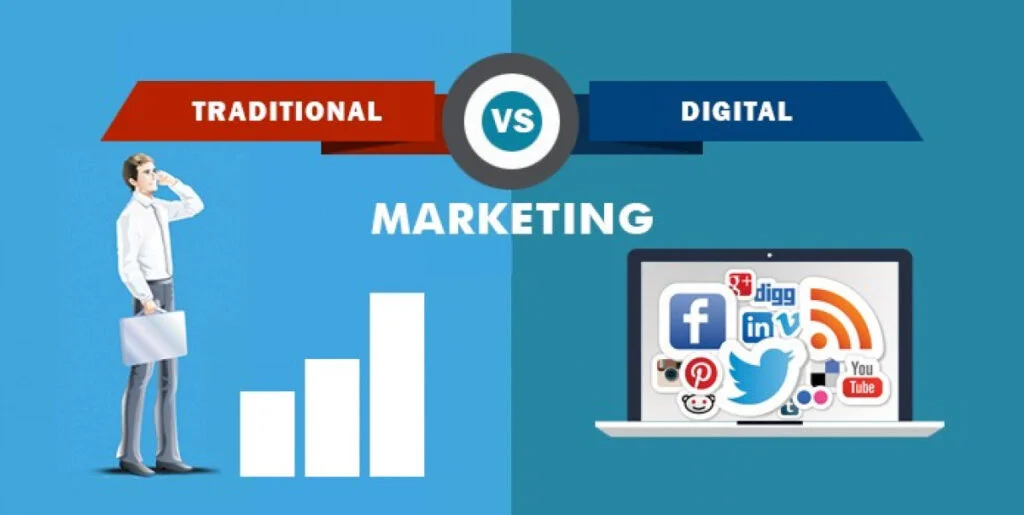Marketing is essential for any business to succeed. It is the way to get the word out about your product or service and generate sales. However, with so many different types of marketing agencies out there, it can be difficult to decide which one is right for your business. In this article, we’ll be exploring the differences between performance marketing and traditional marketing, and which agency you should choose.
What is Performance Marketing?
Performance marketing is a type of digital marketing that focuses on driving measurable results for a business. This type of marketing typically involves paying for a specific action, such as a click or a sale. The goal of performance marketing is to maximize the return on investment (ROI) for a business by driving as many conversions as possible.
One of the key advantages of performance marketing is that it is highly targeted. Performance marketing agencies use data and analytics to identify the most effective channels and tactics for reaching a business’s target audience. This allows them to create highly personalized campaigns that are more likely to convert.
Examples of performance marketing tactics include pay-per-click (PPC) advertising, affiliate marketing, and email marketing. These tactics are typically very measurable, with businesses able to track the number of clicks, conversions, and sales generated by each campaign.
What is Traditional Marketing?
Traditional marketing, on the other hand, refers to more traditional forms of advertising, such as television, radio, and print ads. This type of marketing is typically less targeted than performance marketing and is focused more on building brand awareness and generating leads.
Traditional marketing can be effective for businesses that are looking to reach a broad audience or build their brand image. However, it can be more difficult to measure the ROI of traditional marketing campaigns, making it harder to justify the cost.
Which Agency Should You Choose?
When deciding between a performance marketing agency and a traditional marketing agency, there are several factors to consider.
1. Your Business Goals
The first thing to consider is your business goals. If your goal is to drive measurable results and maximize ROI, then a performance marketing agency is likely the best choice. On the other hand, if your goal is to build brand awareness and generate leads, then a traditional marketing agency may be more appropriate.
2. Your Budget
Another factor to consider is your budget. Performance marketing can be more expensive than traditional marketing, especially if you are paying for clicks or conversions. However, if your campaigns are effective, the ROI can be much higher than with traditional marketing.
3. Your Target Audience
Finally, consider your target audience. Performance marketing is typically more effective for reaching a specific audience, while traditional marketing may be better for reaching a broader audience. Think about who your target audience is and how you can best reach them.
4. Timeframe
What is your timeline for seeing results from your marketing efforts? Performance marketing campaigns can often deliver results more quickly, while traditional marketing campaigns may take longer to see a return on investment.
Reasons Why Performance Marketing is Better Than Traditional Marketing
Performance marketing is a type of marketing that focuses on generating measurable results, such as leads or sales, through various digital marketing channels. Here are eight reasons why performance marketing can be more effective than traditional marketing:
1. Measurable Results: Performance marketing provides measurable results, allowing you to track the performance of your marketing campaigns and determine their effectiveness. You can easily measure the ROI of your campaigns and make adjustments to improve performance.
2. Cost-effective: Performance marketing is more cost-effective than traditional marketing because you only pay for the results that you achieve. This means that you can optimize your campaigns to ensure that you are getting the best results for your money.
3. Flexibility: Performance marketing is highly flexible, allowing you to make changes to your campaigns in real-time. You can adjust your targeting, creative, and messaging based on the performance of your campaigns, ensuring that you are always optimizing for the best results.
4. Higher ROI: Performance marketing typically has a higher ROI than traditional marketing because it is more targeted and efficient. By focusing your efforts on the people most likely to be interested in your product or service, you can achieve better results with less spend.
5. Data-Driven: Performance marketing relies on data and analytics to drive decision-making, ensuring that your marketing efforts are based on real insights and not just assumptions or guesswork.
6. Accountability: Performance marketing puts the onus on marketers to generate results, which encourages greater accountability and transparency in marketing efforts.
Final Words
Ultimately, the choice between a performance marketing agency and a traditional marketing agency will depend on your business goals, budget, and target audience. Consider your options carefully and choose the agency that is best suited to your needs.
So why wait? Don’t let your business fall behind the competition – contact Zavops today and let us help you achieve the success you deserve!
Our team is standing by, ready to answer your questions and get started on your customized marketing strategy.
Let’s take your business to the top!










